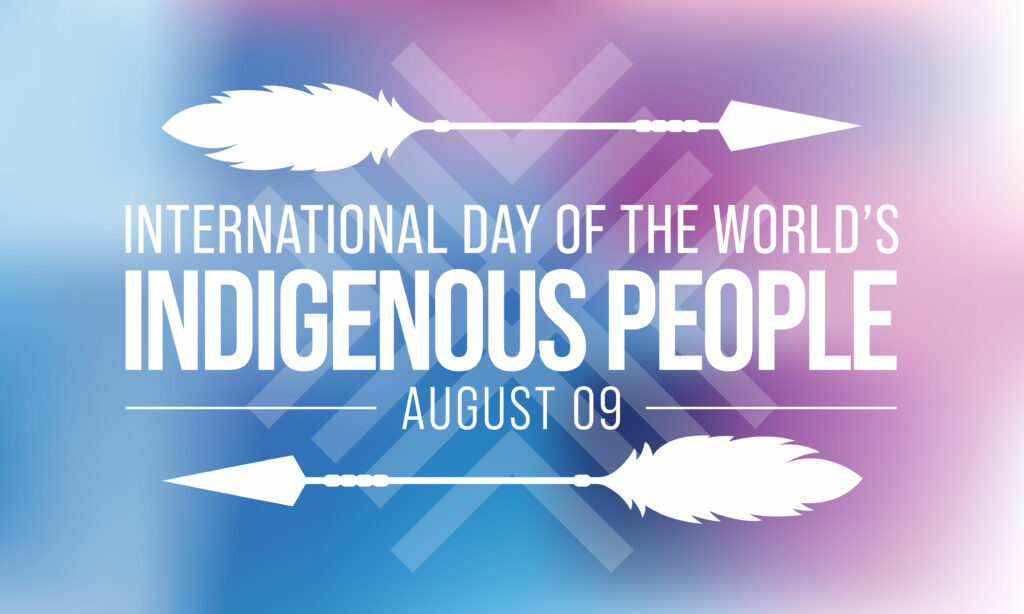International Day of World Indigenous Peoples

International Day of World Indigenous Peoples
AUTHOR: SHERRY WOODS
What? Celebrated every year globally, the International Day of World Indigenous Peoples is an opportunity to celebrate these communities and their knowledge.
When? August 9, 2023
Where? Global (all over the world)
Who? “There are more than 476 million Indigenous people worldwide, living across 90 countries” (United Nations)
In the last few months, Strike Group has shared many articles about Indigenous people, mainly from Canada and the United States, but did you know there are Indigenous people all over the world with their own unique cultures?
There are estimated to be 476 million Indigenous people worldwide, living across 90 countries. They make up less than 5 percent of the world’s population, but account for 15 percent of the poorest. They do however speak the majority of the world’s estimated 7,000 languages and represent 5,000 different countries (United Nations).
Languages
There are thousands of Indigenous languages and about 40 percent of those languages are at some level of endangerment because they are not taught or used in most public areas.
Economics
Each indigenous group has a unique culture, and their struggles vary across space and time but there are many common themes.
- Globally, 47% of all indigenous peoples that are employed have no formal education, compared to only 17% of their non-indigenous counterparts. This gap is even wider for women.
- More than 86% of indigenous peoples globally work in the informal economy, compared to 66% for their non-indigenous counterparts. (I.e. An informal economy is part of any economy that is neither taxed nor monitored by any form of government)
- Indigenous Peoples are nearly three times as likely to be living in extreme poverty compared to their non-indigenous counterparts (United Nations).

What do all Indigenous people share common interests in?
Worldwide, Indigenous People are inheritors and practitioners of unique cultures and ways of relating to people and the environment. They retained social, cultural, economic, and political characteristics that are distinct from those of the dominant societies in which they live. Despite their cultural differences, Indigenous people from around the world share common problems related to the protection of their rights as distinct peoples.
Indigenous people all over the world share a similar worldview and they all play a role in protecting the world’s biodiversity. Their knowledge is vital in the discussions around climate change. Western cultures have built their economies on extracting things from Mother Earth and they sometimes fail to acknowledge and remember all that we get from her, including food, water, and clean air. Commonly all Indigenous people around the globe are promoting action and advocacy around climate change. For the health of ourselves and Mother Earth, we can’t keep harming Earth as we do and we need to start listening to Indigenous voices. This day is observed each year to promote and protect the rights of the world’s Indigenous population and recognize achievements and contributions to improving Indigenous issues globally.
Travel
If you are ever travelling to a different country, it is a respectful practice to know whose Indigenous traditional territories you are on and to take the time to learn about the different cultures as this will aid in your understanding of the area you are visiting.
Examples of Non-Canadian Indigenous Cultures
Below are a few videos on different Indigenous cultures from around the world.
Māori people, of Aotearoa (New Zealand)
The Māori are the indigenous people of New Zealand. They are Polynesian and make up around 15 percent of the country’s population.
Aboriginal Australian, Torres Strait Islander People.
984,000 Aboriginal and Torres Strait Islander people, representing 3.8% of the total Australian population.
Sami (or Saami) people. Indigenous people of Norway, Sweden, Finland, and Russia.
The Sami culture is the oldest culture in large areas of Northern Norway.
Brazil
There are an estimated 896,917 Indigenous people in Brazil, distributed among 305 ethnic groups. The principal indigenous ethnic group is the Tikúna, who comprise 6.8% of the total indigenous population.
There are many more beautiful Indigenous cultures that we could talk about, and we encourage you to make time to learn about these cultures.
Documentaries to Watch for International Day of the World’s Indigenous Peoples
References
-
https://nordnorge.com/en/tema/the-sami-are-the-indigenous-people-of-the-north/
-
https://www.abs.gov.au/statistics/people/aboriginal-and-torres-strait-islander-peoples/estimates-aboriginal-and-torres-strait-islander-australians/latest-release
-
https://www.virtualoceania.net/newzealand/culture/maori/
-
https://www.un.org/en/observances/indigenous-day
———————————
About the Author:
Sherry is currently studying Communications at Mount Royal University. She is working towards using her writing talents to give voices to Indigenous People and helping to tell their stories. She is a proud member of Siksika Nation and the Blackfoot Confederacy.
